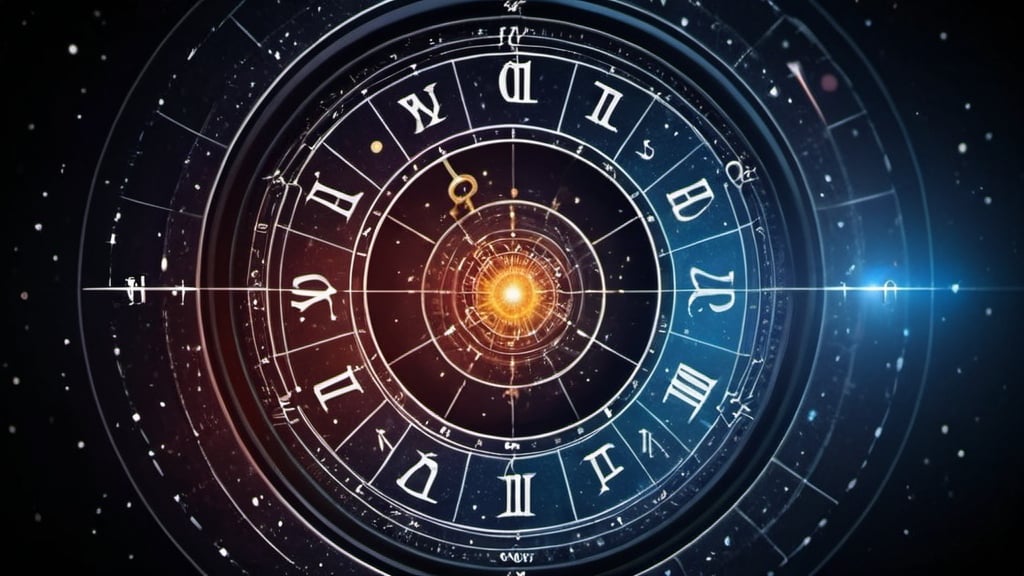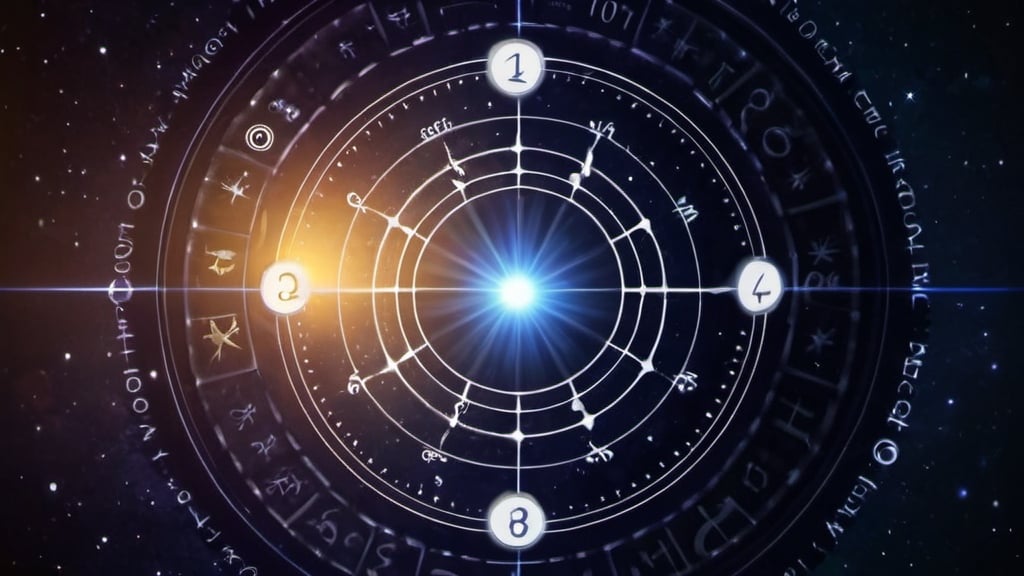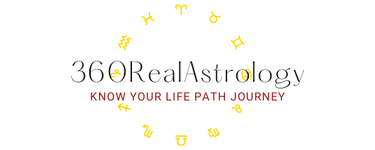Unlock Your Future: Why Every Decision Counts in Astrology

1. Introduction
If every “play” we act right out in life has its own consequence, what about the decisions we make? takes the reader on a journey through the many factors of the 12 signs as well as how the planets affect each of these signs. The importance of every decision made in life is dissected through the aspects: “A good aspect shows good judgement which leads to a right decision, whereas a bad aspect shows poor judgement and a wrong decision” (390). The glyphs, which so appropriately mean “an idea that has to be planted,” give us insight into why people of the same sign can be so different based on the environments they were exposed to from birth. Moon signs must not be overlooked due to their huge influence in our lives.
An individual’s moon sign is a key factor in stelliums which occur in a house of the natal chart; here there may be a tendency to make decisions (both good and bad) regarding the house. North and South nodes reflect decisions that were made in past lives as well as the direction in which we are choosing to go in this life. Based on the fact that the future outcome of something is a result of a decision, Japanese astrologers believe that transits are the most important thing to predict. This tip of the iceberg theory shows that all things learned in astrology tie back into a decision of some sort.
2. The Influence of Astrology on Decision Making
The nature of a person’s personality or behavior is directly related to their astrological sign. For the person who is unaware of their astrological sign or the characteristics of that sign, it is easy to find out. Astrological signs are typically centered on the prediction of future behavior or personality of a person based on where the sun was aligned during the time of birth of that person. From there, an astrological chart is created to get more in-depth readings of a person’s characteristics. The sun sign is just one of many signs in the astrological chart, but it is what is most commonly known. Once one knows their sign and the general characteristics of that sign, it is quite easy to relate specific behaviors or decisions to an aspect of that astrological sign.
Throughout life, people are reviewing their decisions, making choices that will affect their future, and wondering if their decision was the best one. By incorporating astrology into the equation, it can bring a new light into the nature of people and the decisions they make. According to Deepak Chopra, a well-known scholar in astrology, “Every time you are tempted to react in the same old way, ask if you want to be a prisoner of the past or a pioneer of the future.” In other words, Chopra is trying to express that people can learn from their past decisions or continue to make the same mistakes over and over again. The reasoning behind astrological signs and decision making comes from the consistent behavior that one portrays over time, a personality trait.
2.1. Understanding Astrological Signs
On the cusp of each sign, there are characteristics and personality traits shared with the previous zodiac sign. By recognizing the position of planets, you can understand what sign is being expressed and in what manner. When the action planet or the planet of love, etc., is in a certain sign, it will be expressed in a fashion typical of that sign. For example, Mars (action planet) in Sagittarius will have one taking direct action in means of achieving goals, often in radical ways. Whereas Mars in Capricorn will be slow and steady in its approach to ambition.
Signs can be seen as a “mask” that individuals wear. Whilst being enveloped in that sign, the characteristics will be acted out in their purest manner. One could say that the positive aspects are exaggerated and the negative hidden traits are more likely to be released. The good and bad of a sun sign are magnified in the eclipse and transits, when the shadow blocks out the light or when the light is allowed to shine. This is when the inner personality will be expressed, and the internal struggles will have an effect on the life path.
2.2. How Astrological Signs Affect Decision Making
Finally, and perhaps most convincingly, are those who have made a decision they later regret and attribute it to the sun sign they are not. An example would be an Aries who marries young and later regrets the decision, feeling it was based on the fact that they are a Libra moon sign and did something to please another person. This last example furthers the notion that indeed it is not solely the characteristics of our own sun sign that influence our decision making, but the characteristics of all the signs, which lie within all of us.
In means of arguing that astrology does influence decision making far beyond what we can truly understand, it could indeed be said that when we make a decision that does not correspond to our sun sign, we often utilize the traits of a sign that is our Ascendant or our Mercury sign. For instance, a Leo who has Capricorn as their Mercury sign may make a rather uncharacteristic decision in light of their normal egocentric and creative Leo decision making – an example being they might decline an invitation to a party in order to stay home and work on something.
The system of categorizing individuals by their birth date and zodiac sign provides a generalized description of the characteristics of each sign that can be utilized as an insightful tool for understanding oneself. Each sun sign has its positive and negative sides, and when making decisions, individuals often employ the traits of their sun sign when coming to a conclusion. For example, a Cancer, being very nurturing and caring, will make a decision based on what is best for the people involved, compared to a Capricorn, who is highly pragmatic and will make a decision based on what is best for achieving their personal goal. This then begs the question: are our decisions really our own, or are they characteristics of our sun sign merely playing themselves out?
3. Harnessing the Power of Astrology for Better Decision Making
The second step is to discover the most effective astrological tools and techniques that are available for the period when a decision needs to be made. By understanding which method is best used at which time, what to avoid, and what will bring the best results, the decision-making process can become much more precise and tailored to your requirements. For example, if you are considering studying a course that you are not certain is the right move for you, or taking a job overseas, the methods of electional astrology are used to pinpoint the best timing for these decisions. Assuming that the course has an actual start date, it is possible to draw up a chart for that time and compare it to your own chart to determine the outcome of the course. This can also be used to determine which set of exams is best to sit, relative to your knowledge at the time.
The first step to better decision making through astrology is getting to know yourself better, in the astrological context. We are all aware of our own strengths and weaknesses, but astrology can pinpoint these more accurately, showing us how and why we operate as we do. Your particular talents and difficulties need to be taken into account when making major decisions, as often what would be a sound choice for one person is not recommended for another. A few well-known examples of how to determine personal strengths and weaknesses through astrology are by the use of the sun and moon’s position in the chart, and the sign on the ascendant.
3.1. Identifying Personal Strengths and Weaknesses
So far, we have shown you why making the right decision is so important and how you can choose the right path using past karmas (3.0). In this section and the next, we provide some valuable astrology tools to help you make more informed and timely decisions, ultimately resulting in a more successful outcome. The first of these tools and one of the most powerful is the analysis of personal strengths and weaknesses. This knowledge of who you are and what you’re about is a fundamental key to success in anything that you do. When you have a clear understanding of your objectives and a strong awareness of your capability in meeting them, the chances of success are greatly increased. Similarly, when decisions lead you into situations that are in harmony with your nature, the result is positive and fulfilling.
This is commonly referred to as working to your strengths, and is what everyone ultimately seeks in their professional and personal lives. Conversely, when we don’t have a clear understanding of what we’re trying to achieve or when a decision compromises our ability to do it, the result is often unsatisfactory. This is generally because we’re unaware of whether the decision is right for us or alternatively we’re unsure of what the best course of action actually is. The analysis of weaknesses can also be very useful, as it can warn us of potential problem areas or mistakes that we’re likely to make, allowing us to take precautionary measures or avoid certain situations. By identifying negative behaviour patterns or personality traits that are likely to inhibit success, it is possible to take action to change them and work towards a more positive outcome.
3.2. Utilizing Astrological Transits and Aspects
Transits can, at times, be difficult to interpret, as there are so many potential areas of life which could be affected at any one time. A classic mistake for beginners to make is to look at transits in isolation. It is important to take into consideration the collective picture of all the transits which are occurring at any one time. A method of doing this is to keep a planet/aspect/house list and write down notes as to how each transit is affecting a person at that time. This gives a detailed record which can be looked back on to understand more about why things happen when they do.
When analyzing transits, the best place to start is to look at what the planet/house/person and aspect is, which is being analyzed. Then take into consideration what the meaning of the area of life which is being affected is. For example, if there is a transit of Jupiter to the 6th house, you would look up the meaning of Jupiter, 6th house, and health (the general meaning of the 6th house). Combine these meanings with the knowledge of the client’s life and planets, and a prediction can be made as to how the transit will affect the client. This technique can be used to forecast future events and to gain a deeper understanding of what is happening right now in a person’s life. It can also be used to help someone who is having difficulty in a certain area of life to understand why this is happening and to see what the lesson is and when the situation is likely to change.
Transits are a powerful and predictive form of astrology. When utilized with natal and the understanding of one’s own chart, transits can be a winning way to live astrologically. A transit is the current position of where the planets are and how they are affecting you at this time. Each transit lasts for a different length of time depending on the planet and the aspect to the natal chart. When a slow-moving planet is transiting a house or planet, it gives a powerful effect for a longer period of time. The Sun has a transit time of a year, so at some point in anyone’s life, the Sun will have transited every house in the natal chart, showing the areas of life experience available to a person. The faster-moving planets Mercury, Venus, and Mars have a general transit of 1 month. The Moon is a very fast-moving planet and changes sign every 2.5 days, so its transit moves through our chart quickly. The longer a transit lasts, the more probability there is that there will be a repeated theme in that area of life.
3.3. Incorporating Astrological Timing Techniques
Yes, it is evident that for any significant decision to be made, it is necessary to first understand the priority and the goals of the person making the decision. Having knowledge of what is important and why it is important helps to put life events into perspective and ideally steer a course toward a more desirable outcome. Decisions being represented by the 10th house in one’s chart indicate a relationship between decision making and regulating the affairs of one’s life with the planetary activity affecting that 10th house. Ideally, we are looking to optimize the position of the transiting planets by choosing the best time to make a move.
On occasion, the decision may be symbolized by a certain planet. For example, a Neptune decision may be an ideal time to take a holiday, Venus a relationship decision, and so on. Looking at the chart to see what part of the chart that planet is affecting, in particular by sign and aspect, can give clues as to what will happen if it takes that action at that time. For example, if a person wants to change jobs but the 2nd house is very weakly aspected at that time, the change may end up in a decreased income. A Mercury decision we would ideally hope to line up with a 6 or 3-month period that begins when Mercury changes signs or goes direct.

4. Embracing the Potential of Every Decision
As mentioned earlier, astrology seeks to establish a cause-and-effect relationship: cosmic events and their effect on the human experience. We know that good decision-making depends on our ability to accurately gauge the likely consequences of our choices. Astrology is a valuable tool which aids us in understanding the right timing of when to make a decision. By using the birth chart in electional astrology, we can identify the quality of the time, and what will be the result of what we are initiating. Fortunate aspects to the birth chart can create an easier decision; challenging aspects can suggest otherwise.
Often, it is the transitory influences which can provide an impetus or deterrent to making a decision. Coming from a place of wisdom, the wise do not make a decision during a void of course moon. And the more precise an individual can be in timing their decision, often the more satisfying the result. Involvement in determining the result of a situation is in essence, empowering. And there is no more satisfying way to be sure of success in life than knowing the best result possible. This is truly the art of astrology in practice.
4.1. Recognizing the Butterfly Effect in Astrology
Still, the simplest action of the butterfly may later be understood through rectification of an event chart – I have seen effects of a mistyped key on a computer while calculating an event chart lead to different life-changing results for the native concerned. All of these provide clear examples of the potential effects of decisions through the domino of changing energy.
Steps we take under a Mars transit, for instance, may be aggressive and later cause conflict when a retrograde Saturn passes over the place where Mars was. At that time, Saturn will be asking us to readdress those actions and perhaps take responsibility for our own aggressive stance. This kind of astrological ’cause and effect’ can be measured in chart interpretation through progressions and transits on the birth chart. It can provide an understanding of how a certain action in a given period of time will lead to a certain outcome.
There are a number of philosophical ideas and a great deal of scientific research that suggest the potential for a “butterfly effect” in life – the concept that a small action can have a significant effect later on. Essentially, this is a reference to the chaos theory idea which states that the flapping of a butterfly’s wings in Brazil could set off a tornado in Texas. It resonates with ideas presented in astrology. In understanding that the changing nature of the planets provides a constantly changing energy which interacts with our own, we can begin to see that the decisions we make on even the simplest action could affect the outcome of a situation, or even our entire life.
4.2. Embracing Growth and Transformation
In the material sciences, chaos and disorder are taken to be signs of meaningless events. But the fact is quite the opposite from the perspective of astrology. Order is a sign that the event has less meaning in terms of what opportunities are offered for growth at that point. When something is well-ordered, it usually means that we already understand the functions going on and that we do not need to be conscious of the event in order to influence future results. Thus, for most people, meaningless order is the breeding ground of more chaos and disorder.
They become trapped in situations that they do not want to be in, which eventually leads to a greater number of mistakes and opportunities to “miss the boat”. At this point, it happens more easily that they will give up on something as a lost cause. But, there is always a way to add meaning to an experience and avoid giving up on a lost cause. All that is required is understanding the event from a different perspective and a willingness to take the right actions at the most opportune times.
It is easy to get discouraged when things do not seem to go the way we want them to. We may feel that wanting to change things for the better, we run into unwanted factors that create chaos and stress. The moment that we get angry or stressed over situations or results, that is the point when we have lost sight of how astrology works and how to truly improve our lives. Let’s remember the essence of astrology, which is to understand that every event in life has meaning. (Doshi, 2021)(Clapp and Moseley, 2020)(Zhu et al., 2020)(Finstad et al.2021)(Thorgren and Williams, 2020)(Eckstein et al., 2021)(Gregurec et al., 2021)(Li et al., 2021)(Goldberg and Warburton, 2021)(Rustamov et al.2021)
References:
Doshi, R. “The long game: China’s grand strategy to displace American order.” 2021. brookings.edu
Clapp, J. and Moseley, W. G. “This food crisis is different: COVID-19 and the fragility of the neoliberal food security order.” The Journal of Peasant Studies, 2020. researchgate.net
Zhu, G., Chou, M. C., and Tsai, C. W. “Lessons learned from the COVID-19 pandemic exposing the shortcomings of current supply chain operations: A long-term prescriptive offering.” Sustainability, 2020. mdpi.com
Finstad, Georgia Libera, et al. “Resilience, coping strategies and posttraumatic growth in the workplace following COVID-19: A narrative review on the positive aspects of trauma.” International journal of environmental research and public health 18.18 (2021): 9453. mdpi.com
Thorgren, S. and Williams, T. A. “Staying alive during an unfolding crisis: How SMEs ward off impending disaster.” Journal of Business Venturing Insights, 2020. nih.gov
Eckstein, D., Künzel, V., and Schäfer, L. “The global climate risk index 2021.” 2021. bvearmb.do
Gregurec, I., Tomičić Furjan, M., and Tomičić-Pupek, K. “The impact of COVID-19 on sustainable business models in SMEs.” Sustainability, 2021. mdpi.com
Li, T. T., Wang, K., Sueyoshi, T., and Wang, D. D. “ESG: Research progress and future prospects.” Sustainability, 2021. mdpi.com
Goldberg, E. M. and Warburton, R. W. “Ends and Means in Social Work: the development and outcome of a case review system for social workers.” 2021. [HTML]
Rustamov, Ilhom Tursunovich, Jumaqul Sarimsaqovich Mamatqulov, and Abduaziz Abdujabbarovich Boymatov. “The place of small genre texts in genre features.” Annals of the Romanian Society for Cell Biology (2021): 5325-5331. annalsofrscb.ro








Connect me